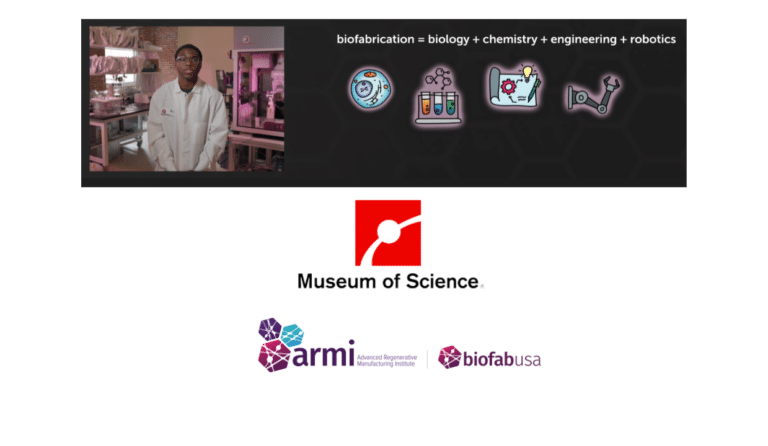The 2019 Defense Manufacturing Conference was the meeting site of ChromoLogic, developers of cell therapy and researchers of disease treatment, and BioFabUSA, leading to the merging of ecosystems and the partnership that the organizations have today.
Part of ChromoLogic’s mission statement reads, “Founded in 2007, ChromoLogic is a boutique, product-focused innovation center developing solutions that save lives and make the world secure.”
Located in Monrovia, CA, the company maintains about 12,000 square feet of mixed laboratory and office space and leases additional specialized laboratory facilities at various educational institutions. Over the last five years, the company has three times made Inc.’s list of the 5,000 fastest-growing private companies in America.
 ChromoLogic’s Biomedical Solutions division develops point-of-care solutions with the goal of delivering the best health outcomes at the lowest cost. Its capabilities span four key verticals: wound care and infectious disease, diagnostics/screening, drug delivery, and telehealth.
ChromoLogic’s Biomedical Solutions division develops point-of-care solutions with the goal of delivering the best health outcomes at the lowest cost. Its capabilities span four key verticals: wound care and infectious disease, diagnostics/screening, drug delivery, and telehealth.
Customers and collaborators of ChromoLogic include medical manufacturers, academic institutions, government agencies and care providers.
To meet the needs of this broad customer and market base, the company brings together the brightest minds from every engineering and science discipline and form collaborations across academia and industry. This approach is a perfect tie in to all that BioFabUSA, a program of the Advanced Regenerative Manufacturing Institute (ARMI), stands for. Many of ChromoLogic’s collaborators have voiced their appreciation of the highly innovative, multidisciplinary approach the company takes to solving problems.
Throughout the last six years, ChromoLogic has developed multiple R&D programs that fall within the broad regenerative manufacturing industry.
As a company, ChromoLogic states, “We are deeply committed to this nascent industry as we harness the ability of cells to not only produce novel methods to treat critical ailments but also as a platform for testing next-generation therapeutics.”
Currently, the company is developing novel cell-therapy platforms that support broad applications ranging from infectious-disease treatment (malaria) to cancer.
Additionally, it is developing novel instruments that support the industrial production of repeatable and reliable cell-based products. These products include a novel in-line, cell-growth-monitoring technology that it is adapting for use in regenerative medicine. The technique uses optical coherence tomography to monitor cells (concentration, contamination, viability) growing in agitated bioreactors in a completely non-invasive manner.
ChromoLogic’s leaders believe BioFabUSA fills a key gap in the tissue engineering industry by speeding the development of industry standards and helping new market entrants bring their products to market through a partnership approach that leverages the strengths and needs of multiple organizations.
Through their BioFabUSA membership, like many others, ChromoLogic’s leaders are looking for a platform where they can engage with other organizations dedicated to bringing novel, safe and affordable treatments to patients in need—by partnering with each other across academic, regulatory and industrial silos.
They look forward to being a consumer of new manufacturing technologies from other members of the ecosystem, as well as having something to offer in return. As a result, they deeply share the full mission of BioFabUSA.
According to ChromoLogic’s leaders, “In the next five to 10 years, we anticipate a more complete understanding of cellular engineering as microbiologists, engineers, physicists and chemist learn to work more closely with each other in order to produce sustainable and cost-effective solutions that range from novel therapeutics to energy production.”
When asked what they thought the major barriers to overcome might be in the next five to 10 years, they answered, “We see two major barriers that need to be overcome: how to cost effectively manufacture novel cell therapy applications, and how to make sure they are safe and sustainable. This requires deep engagement amongst experts from multiple fields and broad open education.”
The goal of the BioFabUSA partnership is to overcome these barriers, redefining the regenerative manufacturing space.
This article was first posted on LinkedIn.






